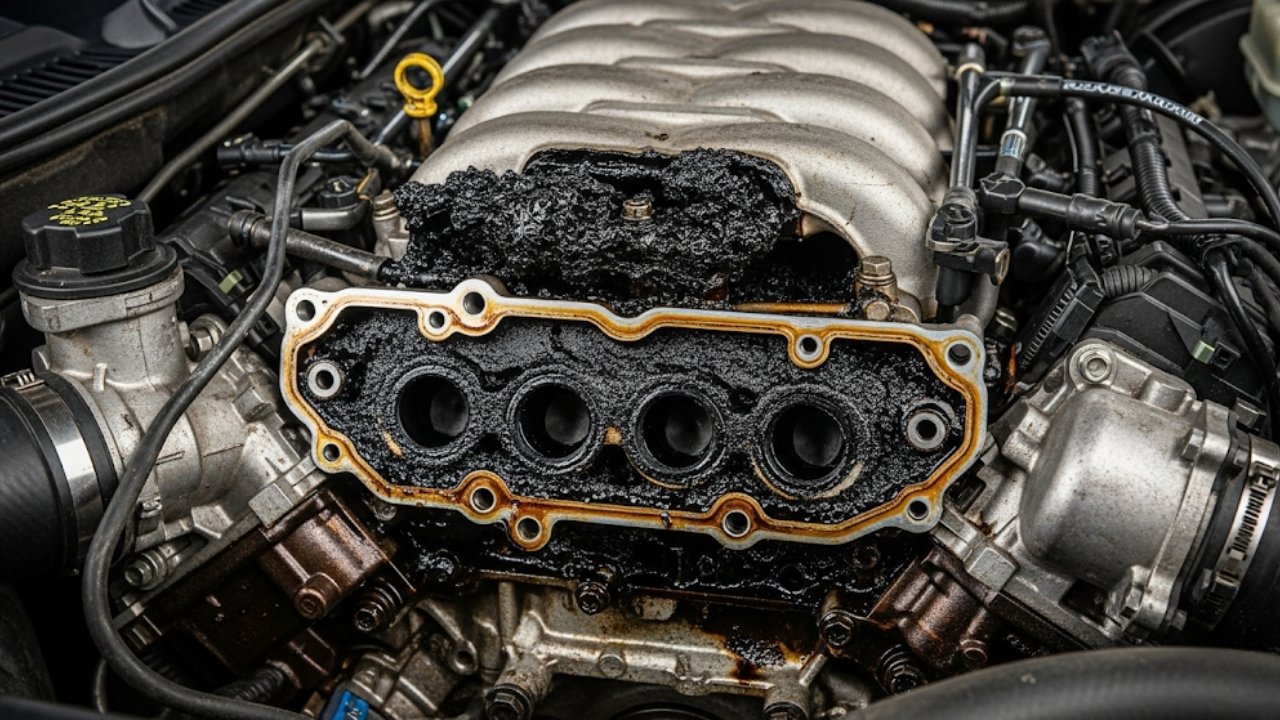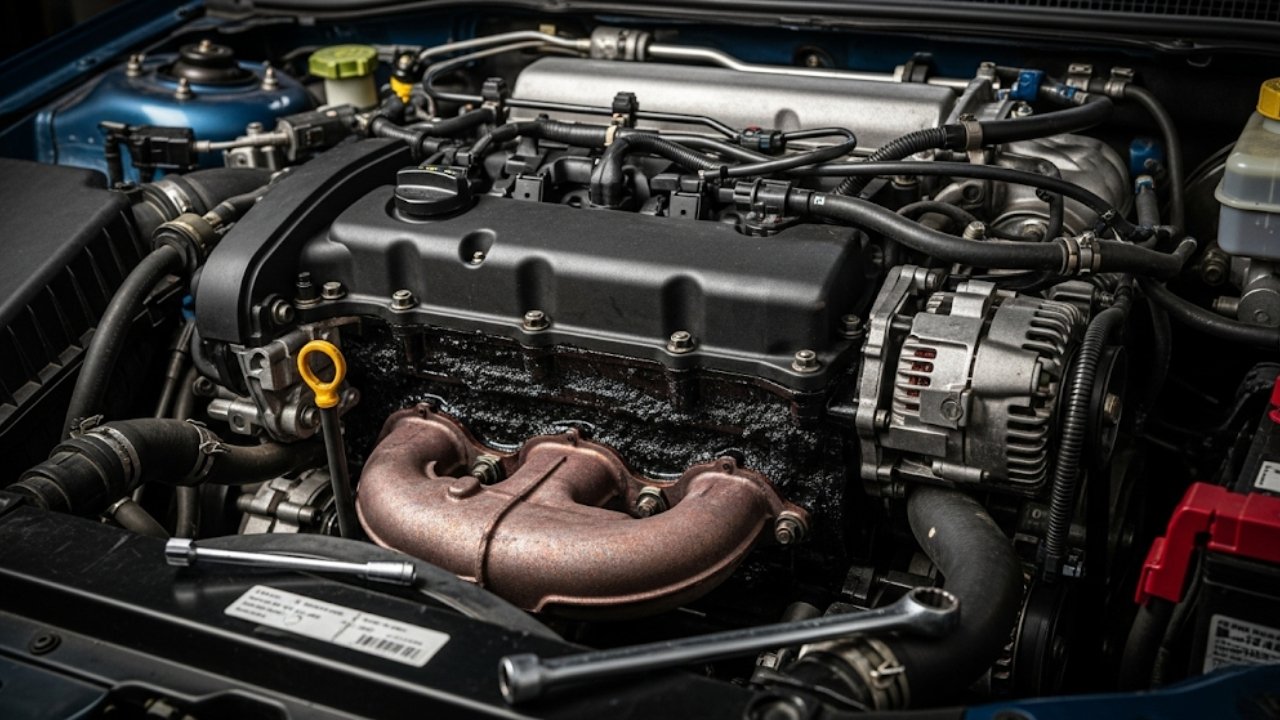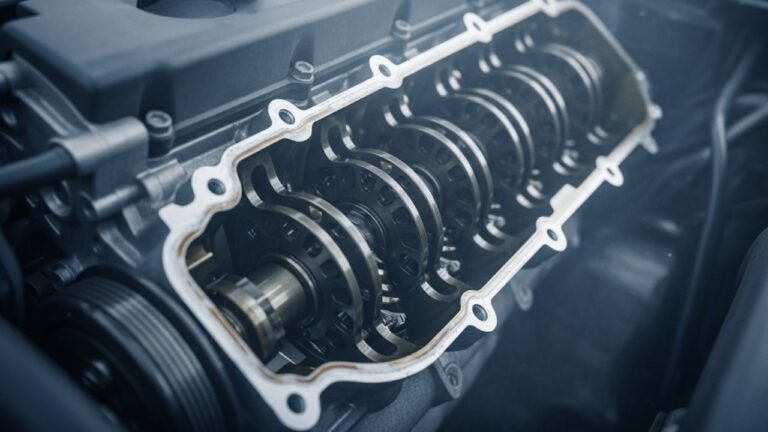Why Does the Oil in My Car Smell Burnt? A Friendly Guide

You hop in your car on a hot afternoon, start the engine, and within a few minutes, you catch a whiff of something unusual. It’s not the lingering scent of your takeout or that air freshener from last month—it’s something more worrying. It smells… burnt. And oddly enough, it’s coming from your car’s oil.
When oil in your car smells burnt, it’s like your car is crying out for help in its own smoky language. It’s not just annoying; it’s a red flag. That smell can signal something serious going on inside your engine. Think of it like catching the first signs of a fever—you don’t ignore it, right?
I’ve been there myself. The first time I smelled burnt oil, I was on a family road trip, miles from the nearest service station. At first, I ignored it. But then my car began running rough, like it was struggling to breathe. Turns out, I was cooking my engine oil—literally. That experience taught me a lot, and now, I want to help you avoid making the same mistake.
In this guide, we’re going to explore why oil in your car smells burnt, what it means for your vehicle, and how to fix it before things go up in smoke. Let’s break it down together.
Understanding What Burnt Oil Smells Like (And Why It’s a Big Deal)

So why does this happen? When engine oil overheats, its chemical composition changes. It breaks down, loses its lubricating power, and starts to burn. That’s when you get that burnt smell. And this isn’t just about bad smells—it’s about what’s happening inside your engine.
When oil in your car smells burnt, it often means the engine is running too hot, or the oil isn’t circulating properly. Sometimes it’s a leak dripping onto a hot engine, or old oil that hasn’t been changed in months. In worse cases, it’s a sign of worn-out internal parts causing excessive friction.
Here’s a simple way to think of it: if your car’s engine were a human body, the oil would be the blood. When your blood gets contaminated or overheated, your body suffers. Same thing with oil. Burnt oil doesn’t protect your engine—it can actually speed up wear and tear.
Top Reasons Why Oil in Your Car Smells Burnt
Let’s talk causes. There are several reasons your car oil smells burnt, and knowing them can help you take action fast.
Here’s a breakdown:
Old, degraded oil: If you haven’t changed your oil in 5,000–10,000 miles, it’s likely turned to sludge. It overheats easily and starts to burn.
Oil leak onto a hot engine: When oil leaks from a valve cover or gasket and hits hot metal, it burns and releases a strong odor.
Overheating engine: Poor coolant levels, blocked radiators, or a failing thermostat can cause the engine to overheat, frying your oil in the process.
Worn-out piston rings or valve seals: These allow oil to slip into the combustion chamber and burn, creating that burnt smell.
Using the wrong oil grade: If the oil’s too thin or not designed for your engine, it can break down faster under heat.
Here’s a quick comparison table to help you identify what might be happening:
| Cause | Symptoms | Solution |
|---|---|---|
| Old Oil | Thick, dark, gritty oil with smell | Oil change with correct grade |
| Leaking Gasket | Smoke, puddles, smell after driving | Replace gaskets, check seals |
| Overheating Engine | Temp gauge spikes, engine noise, burnt oil smell | Coolant flush, thermostat replacement |
| Internal Engine Wear | Blue smoke, loss of power, oil burning smell | Engine inspection, ring/seal replacement |
| Wrong Oil Grade | Reduced performance, overheating, burnt scent | Use manufacturer-recommended oil |
This table makes it easier to spot what’s going wrong just from how your car feels or smells. It’s kind of like diagnosing a cold—you look at the symptoms before deciding if it’s just allergies or something worse.
What Happens if You Ignore That Burnt Oil Smell?
Trust me, this is not one of those “wait and see” car problems. Ignoring the fact that oil in your car smells burnt is like hearing a fire alarm and deciding to go back to sleep.
Let’s talk consequences:
Engine Damage: Burnt oil means poor lubrication. And without proper lubrication, metal grinds on metal. Over time, that can completely destroy engine parts like the crankshaft, pistons, and camshafts.
Reduced Fuel Efficiency: The engine works harder when it’s not lubricated properly. That means more fuel burned for less performance.
Smoke and Smog: Burnt oil often leads to visible smoke from your tailpipe, especially if it’s leaking into the combustion chamber.
Costly Repairs: What could’ve been a $40 oil change might turn into a $4,000 engine rebuild.
A buddy of mine once pushed his luck. He smelled burnt oil but figured he’d handle it next weekend. That weekend never came. Instead, his engine seized on the highway, and he ended up needing a full engine swap. Not fun—or cheap.
So if you smell burnt oil, don’t put it off. Even if your car seems to be running okay, the damage could be happening silently.
How to Diagnose Burnt Oil Smell at Home
You don’t have to be a mechanic to start figuring out what’s wrong. There are some easy steps you can take to check why the oil in your car smells burnt.
Let’s go step by step:
Pop the hood: Carefully open your hood after the engine has cooled. Look for oil stains, wet spots, or smoke.
Smell the dipstick: Pull out the oil dipstick and take a sniff. Does it smell burnt or sour? That’s a sure sign the oil has degraded.
Check oil color: Good oil should be amber or honey-colored. If it’s black and thick, it’s likely past its prime.
Look for smoke: Watch your tailpipe. Blue smoke can indicate burning oil inside the engine.
Watch the temp gauge: If your engine frequently runs hot, that’s a major clue something’s wrong.
If any of these checks confirm your suspicion, it’s time for an oil change or a deeper look by a mechanic.
How to Fix Burnt Oil Smell in Your Car
When the oil in your car smells burnt, it’s a clear signal to take action. The good news is, most fixes are straightforward if caught early. Think of it like tending to a garden—you catch the weeds before they choke the plants.
Here’s what you can do:
1. Change Your Oil and Filter
Start fresh. A complete oil change using the right grade for your engine often solves the issue. Be sure to replace the oil filter as well—it’s like changing your car’s lungs along with the blood. Clean oil can work wonders on performance and smell.
2. Inspect for Oil Leaks
Look around your valve cover, oil pan, and head gasket areas. If you see wet, grimy spots, you’ve probably got a leak dripping onto hot engine parts. Sealing the leak may be as simple as tightening bolts or replacing a gasket.
3. Fix Overheating Issues
An overheating engine often causes oil to burn. Check coolant levels, test the thermostat, and clean the radiator. You might also need to replace a failing coolant fan or water pump. Cooling system fixes are like turning down the heat in your oven—vital to prevent burning.
4. Check Internal Engine Health
If the burnt smell lingers after an oil change, your car may be burning oil internally. Worn valve seals or piston rings can allow oil into the combustion chamber. This type of repair usually requires a mechanic, but catching it early can save your engine.
5. Use Additives or High-Mileage Oil
In older vehicles, switching to high-mileage oil or using oil additives can help reduce burning and protect engine components. It’s a good in-between step if you’re not ready for major repairs.
Pro Tip: Always let your engine cool before inspecting under the hood. Safety first—burnt oil might smell bad, but burnt skin is worse!
Preventing Burnt Oil Smells in the Future
After fixing the issue, the next goal is to prevent the smell of burnt oil from coming back. Prevention is always cheaper and easier than repairs—just like flossing is easier than a root canal.
Here’s what I personally recommend based on both experience and industry advice:
✅ Stick to regular oil changes – every 5,000–7,000 miles, or as per your manual.
✅ Use the right oil viscosity – if your engine needs 5W-30, don’t use 10W-40.
✅ Check for leaks often – a quick visual check under the hood once a month.
✅ Don’t skip coolant checks – a dry radiator can silently cook your oil.
✅ Drive smart – avoid hard acceleration before the engine warms up.
Think of these like small investments in your car’s long-term health. It’s the automotive version of drinking water, sleeping well, and eating your veggies.
The Emotional Toll of Ignoring the Smell
I want to pause and talk to you directly for a moment. Cars are more than just machines. They carry us to work, take our kids to school, get us to the airport for family trips, and sometimes even become part of our identity.
When you smell something off—like burnt oil—you might feel stress, confusion, or even guilt. Maybe you’ve been too busy, or maybe money’s been tight. I get it. I’ve been there too, putting off repairs until payday or hoping the smell goes away.
But trust me, your car doesn’t need perfection—it just needs attention. That burnt smell is a whisper saying, “Hey, I need a little love.”
Culturally, especially in places where we grow up valuing resilience—Bangladesh, South Asia, even rural America—we often push machines hard and expect them to last. That’s fine… if we listen to them when they talk back.
When to See a Mechanic
There’s DIY, and then there’s DNY—Do Not Yourself. If you’ve changed the oil, checked for leaks, and cooled the engine but the burnt smell is still there, it’s time to bring in a pro.
Call a mechanic if:
The burnt smell gets stronger after every drive.
You notice blue or gray smoke from the tailpipe.
Your engine light is on.
There’s poor performance, like jerking or lagging acceleration.
Most workshops now offer free diagnostic scans, so take advantage of that. Better to spend a little on inspection than a lot on a full engine replacement.
Frequently Asked Questions (FAQs)
1. Why does the oil in my car smell burnt only after driving?
Burnt oil smell often appears after the engine heats up. Leaks may not burn until they drip onto hot parts, or degraded oil may only emit odor when under pressure.
2. Can I still drive my car if it smells like burnt oil?
You can, but you shouldn’t for long. It may cause severe engine damage if the issue worsens. Try to fix it as soon as possible.
3. How much does it cost to fix burnt oil smell issues?
Costs vary:
Oil change: $40–$100
Leak repair: $150–$400
Engine repair (rings/seals): $800–$2500+
4. Is burnt oil dangerous to breathe in?
While not immediately toxic, prolonged exposure can irritate the lungs and worsen asthma or allergies. Always ventilate well and fix leaks.
5. Does synthetic oil reduce the chance of burning smell?
Yes, synthetic oil is more heat-resistant and less likely to degrade quickly. It’s especially good for turbocharged or high-mileage engines.
6. Can a clogged PCV valve cause burnt oil smells?
Absolutely. A faulty PCV (Positive Crankcase Ventilation) valve can cause pressure buildup, leading to oil leaks or burning inside the engine.
7. What does burnt transmission fluid smell like compared to burnt engine oil?
Burnt transmission fluid smells more like burnt plastic and is usually accompanied by gear-shifting issues. Engine oil smells more bitter and acrid.
8. Is the burnt oil smell common in old cars?
Yes. Older engines are more likely to leak, overheat, or burn oil due to worn seals and rings. Regular maintenance becomes even more essential.
Conclusion: Don’t Ignore That Burnt Whisper
When the oil in your car smells burnt, it’s more than a minor annoyance—it’s your car’s way of saying “Hey, something’s not right.” The sooner you act, the better your chances of avoiding serious engine trouble.
We’ve walked through what burnt oil smells like, what causes it, how to fix it, and how to stop it from coming back. From oil changes to gasket checks, from coolant levels to smart driving habits—small steps lead to big savings.
It’s a little like life: listen early, act wisely, and things will keep running smooth.
So the next time your nose catches that acrid smell, don’t ignore it. Pop the hood, roll up your sleeves—or call a pro. Your car—and your wallet—will thank you.






